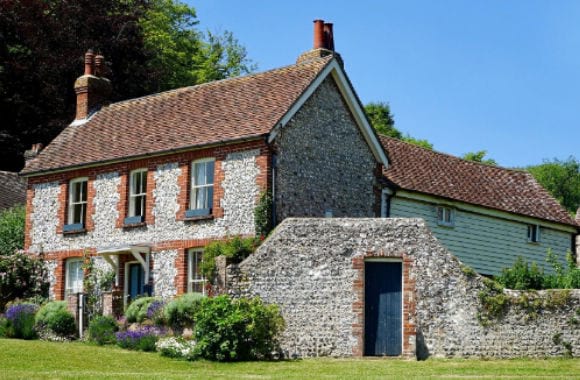1. Make sure your contents are insured
After water and damage, burglary and theft is the third most common reason to claim on your home contents insurance. Over six million homes in the UK don’t have home insurance, meaning that one in four homes are at risk of being out of pocket which is an alarming statistic. If you’re debating whether to insure your belongings or not, you have to ask yourself the question ‘would I be able to replace my items at my own expense?’
2. Check your home insurance policy
You may have contents insurance, but have you read your policy and checked the details? Two areas where people often fall foul of their policy is the amount of single item limit cover they have and their policy being void due to the amount of time they are away from their property.
Most policies have single item limit cover set between £1000-£2000 which, on average, will cover many items in your home. If you have expensive computer equipment or jewellery this may not be enough cover and you may look to increase this limit.
A standard policy covers your home if it’s your main place of residence. If you leave your home unattended for more than 30 days your property would be classed as unoccupied which goes against your standard agreement. This will then result in either a claim not being paid or, at the most, having very limited cover on your items.
3. Keep valuables safe and out of sight
It’s key to make sure that your valuables are out of sight. This should be something you get into the habit of doing before you leave the house for the day. For example, don’t leave your car keys by the front door or your handbag in full view of a window. If you are going to hide valuables in your home, avoid hiding them in obvious places such as your drawers, under your bed etc. If you can’t move your valuables from the property altogether then it’s best to hide them around various locations in your home which are difficult to find and reach, the more obscure the better.
4. Don’t publicise your holiday
In the day and age of oversharing, it’s common for many of us to share on social media about our up and coming holiday plans. Many of our social media profiles are set to private, however, you don’t want a friend to mention your holiday to an acquaintance and for them to pass this information on to an unsavoury character. It’s best to just tell close friends and family that you’re away and upload your holiday pictures once you’re safely home.

5. Hide the tell-tale signs that you’re away
Nothing looks more inviting to a burglar than a home that looks vacant. Here’s a list of practical things you can do to make sure you aren’t easy pickings for any career or chancer criminal;
- Give a key to a trusted friend, neighbour or relative and ask them to take in your post.
- Mow the lawn and cut back your garden before you go away.
- Leave curtains and blinds open. Instead of obscuring what’s inside, you’re alerting to a burglar that you’re not home.
- Cancel all regular deliveries such as milk and newspapers.
- Sign up to Royal Mail’s Keepsafe service. They will hold your letters and parcels for up to 66 days until you return.
- Install a light on a timer switch that comes on in the evening.
6. Turn all electrics off
Apart from the faithful fridge freezer, turn off all appliances from the socket. Not only will this reduce your utility bill and be better for the environment, but it will also reduce the risk of fire.
Depending on what time of year you’re away, you might want to think about altering your hot water and heating timers. In the cold months, it’s best to keep your hot water ticking over to reduce the risk of frozen pipes, however, there’s no need to heat an empty house.
7. Clear your garden
It’s worth spending some time checking the outside of your home and removing any items which a burglar could use to break in. Left out ladders, pieces of wood, bricks etc are all handy tools for a burglar and make it easier for them to break in. Many chancer thieves don’t carry tools with them so rely on homeowners leaving items out for them to use.
8. Lock up
It might sound obvious, but make sure all windows and doors are locked. If you were to leave your house unsecured and you were burgled, you may find your home insurance provider unwilling to pay out due to your lack of ‘reasonable care’. Once your house is suitably secured, make sure you move all spare window and door keys out of sight.
9. Entrust a friend or relative
It’s ideal if you can entrust a friend or relative to check on your house, not just for security purposes but also to check nothing has happened to the property such as a burst pipe. Not only could they prevent disaster, but they could also pick up your post which is a huge tell-tail sign that no one is in.
10. Move your car keys

11. Security systems
It’s no secret that a full proof security system is a great way of protecting your home. Used properly, it can be the difference between coming home to your property as you left it, or returning to a ransacked home. Not only does it act as a deterrent, but it will also have a positive effect on your home insurance premiums.
Was this article helpful?